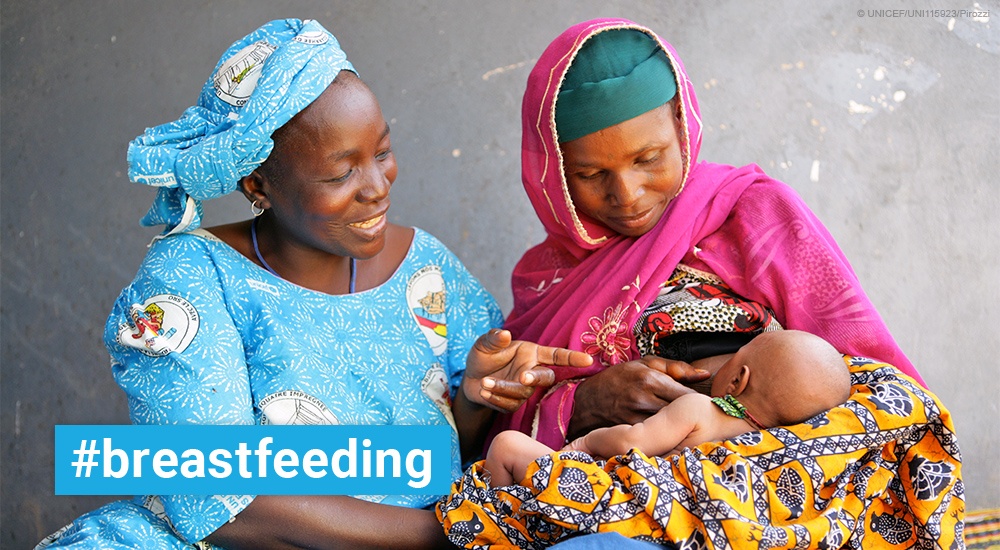UNICEF
Breastfeeding is a vital part of providing every child with the healthiest start to life. It is a baby’s first vaccine and the best source of nutrition, and can bolster brain development.
Breastfeeding also nurtures national economies. Increased rates of breastfeeding can improve a country’s prosperity by lowering healthcare costs and producing stronger, more able workforces.
But breastfeeding is not just a one woman job. It requires encouragement and support from skilled counsellors, family members, health care providers, employers, policymakers and others.
Led by UNICEF and WHO, the Global Breastfeeding Collective is a partnership of more than 20 prominent international agencies calling on donors, policy makers and civil society to increase investment in breastfeeding worldwide.
By investing US$570 million a year for the next 10 years, governments, donors and partners can help raise the rate of exclusive breastfeeding to at least 50 per cent.
>> Read more about the Global Breastfeeding Collective
.png)
Call to action
As part of the Global Breastfeeding Collective, UNICEF joins the call for increased financing and better implementation of policies, programmes and interventions to provide mothers the support they need to breastfeed.
Governments can take seven actions to drive progress on breastfeeding and raise the global rate of exclusive breastfeeding to at least 50 per cent by 2025:
-

1. Increase funding to raise the rate of breastfeeding from birth to 2 years.
-

2. Adopt and monitor the International Code of Marketing of Breastmilk Substitutes.
-

3. Enact paid family leave and workplace breastfeeding policies.
-

4. Implement the ‘Ten Steps to Successful Breastfeeding’ in maternity facilities.
-

5. Improve access to skilled breastfeeding counselling in health facilities.
-

6. Strengthen links between health facilities and communities to support breastfeeding.
-

7. Monitor the progress of policies, programmes and funding for breastfeeding.


